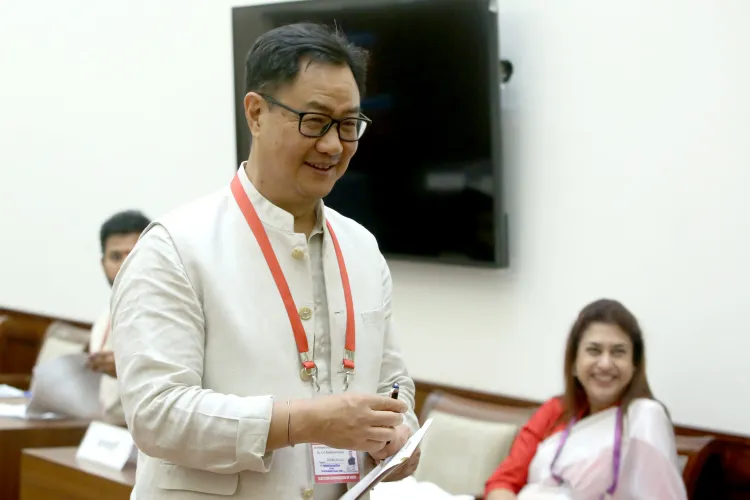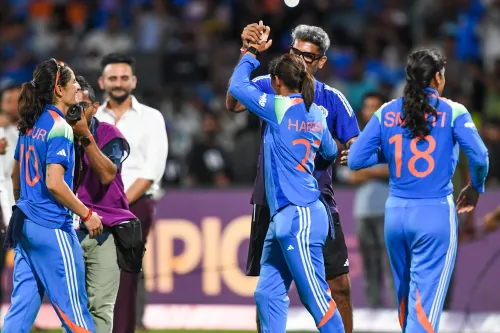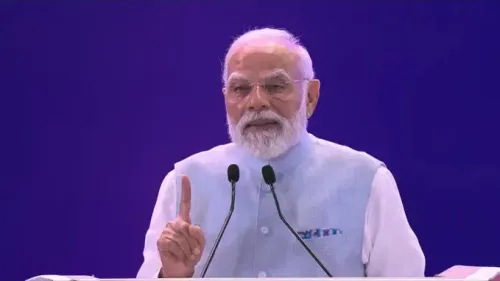Did Kiren Rijiju Thank INDIA Bloc MPs for Voting with Conscience?

Synopsis
Key Takeaways
- Kiren Rijiju acknowledges some INDIA bloc MPs for their vote.
- C.P. Radhakrishnan becomes India's new Vice President.
- A significant number of cross-voting was noted.
- The election highlighted ongoing tensions between the NDA and UPA.
- Voting results indicated fractures within the opposition’s unity.
New Delhi, Sep 10 (NationPress) On Wednesday, Parliamentary Affairs Minister Kiren Rijiju expressed his gratitude towards certain members of the INDIA bloc who voted with their conscience, suggesting instances of cross-voting during the recent Vice-Presidential election held the previous day.
Following the announcement of the election results that led to the selection of C.P. Radhakrishnan as India’s new Vice President, a dispute arose between the BJP and Congress regarding the notion of a 'conscience vote' as a counter to the 'vote chori' allegations.
Jairam Ramesh, the Congress communications head, asserted that the opposition was unified in supporting Justice Sudershan Reddy, claiming full turnout with all 315 MPs voting for him.
Nevertheless, B.L. Santhosh, a senior BJP leader, tweeted that the voting was conducted through ballot papers and that the INDI Alliance received 15 votes fewer than expected. He remarked that the alliance leaders, who campaigned for a conscience vote, received it in return.
The Vice-Presidential election, while anticipated to result in a clear outcome based on numbers, evolved into an ideological confrontation and a demonstration of power between the NDA and the UPA.
Kiren Rijiju’s acknowledgment of certain Parliamentarians for voting with their conscience further substantiates claims of cross-voting.
“The NDA and our supportive MPs remain steadfast. Congratulations to all for electing a humble, capable individual and a true patriot as India's new Vice President,” he stated in a post on X.
The fiercely contested VP elections resulted in NDA candidate and Maharashtra Governor C.P. Radhakrishnan taking office as the country’s next Vice President, following Jagdeep Dhankhar.
The 68-year-old Radhakrishnan secured victory by over 150 votes, obtaining 452 first preference votes, while retired Supreme Court judge B. Sudershan Reddy garnered 300.
The voting statistics revealed significant cross-voting, likely from opposition MPs, with at least 15 MPs supporting the NDA candidate. The NDA faction celebrated, suggesting fractures within the opposition, despite their claims of unity.









